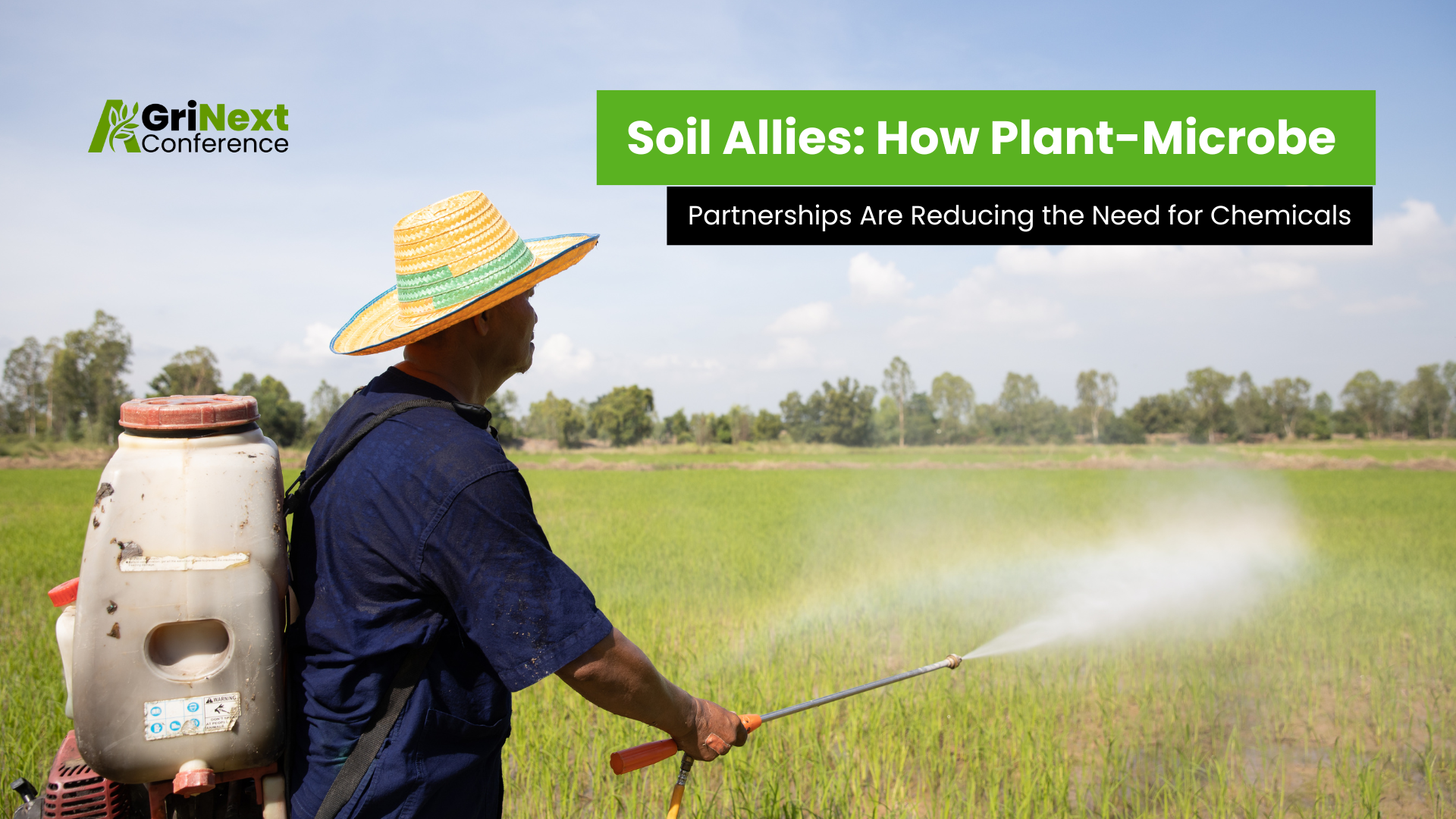
Modern agriculture is undergoing a quiet revolution beneath our feet. Advanced plant-microbe interactions can significantly reduce dependency on chemical fertilizers and pesticides. Recent research highlights how beneficial soil microbes—especially plant growth-promoting rhizobacteria (PGPR), arbuscular mycorrhizal fungi (AMF), and nitrogen-fixing bacteria—can boost nutrient uptake, support plant health, and minimize environmental harm.
Key Mechanisms and Discoveries
Nutrient Supply via Symbiosis
Legumes form symbiotic relationships with rhizobia bacteria to “fix” atmospheric nitrogen—naturally enriching the soil. Similarly, arbuscular mycorrhizal fungi (AMF) enhance phosphorus uptake, a nutrient typically hard for plants to access.
Genetic Advances Boosting Microbial Partnerships
Breakthroughs in genetics—like those involving Medicago truncatula—are helping plants form stronger bonds with helpful microbes, improving nutrient uptake and reducing fertilizer dependency.
Improved Fertilizer Use Efficiency
Microbial inoculants enhance the uptake efficiency of applied fertilizers, reducing the amount needed and minimizing runoff and pollution.
Natural Pest Defense
Many beneficial microbes act as biopesticides, suppressing pathogens and pests. This aligns with integrated pest management (IPM) strategies and reduces reliance on chemical sprays.
Field Results Are Promising
Field trials with crops like wheat have shown improved growth, nutrient content, and yields when inoculated with select microbes—proving the potential beyond lab studies.
Challenges and Future Directions
Field variability remains a challenge: factors like soil type, crop genetics, and climate influence outcomes.
Exciting new developments in microbiome engineering and synthetic microbial communities (SynComs) are opening doors for more reliable, crop-specific applications.
Environmental and Economic Impacts
Less reliance on synthetic inputs reduces farming costs and minimizes waterway pollution and greenhouse gas emissions.
By building healthier soils, these innovations offer resilience against climate stresses and contribute to long-term food security.
Growing Global Adoption
Governments and agricultural institutions worldwide are recognizing the value of plant-microbe partnerships. Countries like India are promoting biofertilizers through subsidies and training programs, while regions in Europe and Latin America are integrating microbial solutions into regenerative farming frameworks. These efforts are helping farmers reduce input costs, enhance soil health, and meet increasingly stringent sustainability goals.
Conclusion: A Root-Level Revolution
Harnessing soil microbes isn’t just a scientific breakthrough—it’s a sustainable farming philosophy. By fostering deeper relationships between plants and their microbial allies, we can feed a growing world while healing the earth.
Events like the AgriNext Awards & Conference are bringing this conversation to the forefront—highlighting innovations in biofertilizers, microbiome engineering, and sustainable crop management. As researchers, startups, and farmers come together at AgriNext, the future of agriculture is being shaped—rooted in nature, powered by science.
Join us this November in Dubai to explore how nature-based solutions and cutting-edge science are transforming agriculture from the ground up.
Signup For AgriNext Conference Newsletter

